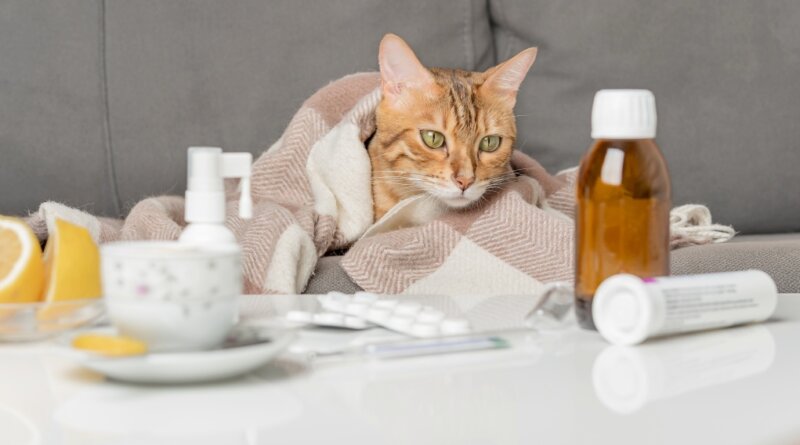Home Remedies for Respiratory Infection in Cats – Top Dog Tips
Upper respiratory infections in cats are quite common. The symptoms can usually be managed at home. If you have a young kitten, senior cat or your cat has a serious health condition, it’s best to seek veterinary care if you notice signs of a breathing problem. However, if your cat is otherwise healthy you can try these home remedies for respiratory infection in cats.
These types of infections can be caused by viruses or bacteria. Upper respiratory infections affect the nose, throat and sinuses – not the lungs. Symptoms may differ from one case to another, but common signs of respiratory infection in cats include:
- coughing
- sneezing
- runny nose
- congestion
- nasal and eye drainage
- fever
- decreased appetite
- lethargy
The vast majority (about 80%) of respiratory infections in cats are viral. This means that there really isn’t much your veterinarian can do to treat the condition, but they may be able to help manage the symptoms. If you’re hoping to save a trip to the vet’s office, you can manage the symptoms on your own with these home remedies for respiratory infection in cats.
Home Remedies for Respiratory Infection in Cats

These home remedies are not difficult to administer, and you probably have a lot of the necessary supplies right in your cupboards. As with humans that are feeling under the weather, you’ll need to make sure that your cat gets plenty of rest. You can do this by ensuring he has a comfortable bed to rest on located in a warm, quiet area of your home.
You also need to encourage your pet to eat. We humans usually don’t feel like eating much when we’re under the weather, and your cat probably won’t either. His sense of smell will also be restricted when he’s fighting a respiratory infection, so you may need to provide something especially tempting like canned cat food or tuna.
Keep your cat’s face clean by wiping away any discharge from his eyes or nose. You can do this with a wet cloth or grooming wipe. Keep a close eye on your cat, so the discharge doesn’t plug his nostrils or become dried to his face.
If your cat seems to be especially congested, you can bring him into the bathroom with a hot shower running. Close the bathroom door and allow the steam to fill the room. Breathing in the steam for 15-20 minutes should help open his airway and allow him to breathe better.
If left untreated, respiratory infections in cats can lead to serious conditions such as pneumonia or chronic breathing problems. If the symptoms continue to get worse or they seem to be severe, reach out to your veterinarian for advice. They will likely have you bring your cat in for a quick check up, just to make sure everything is alright.
READ NEXT: 7 Things You Should NEVER Do with Your Cat



